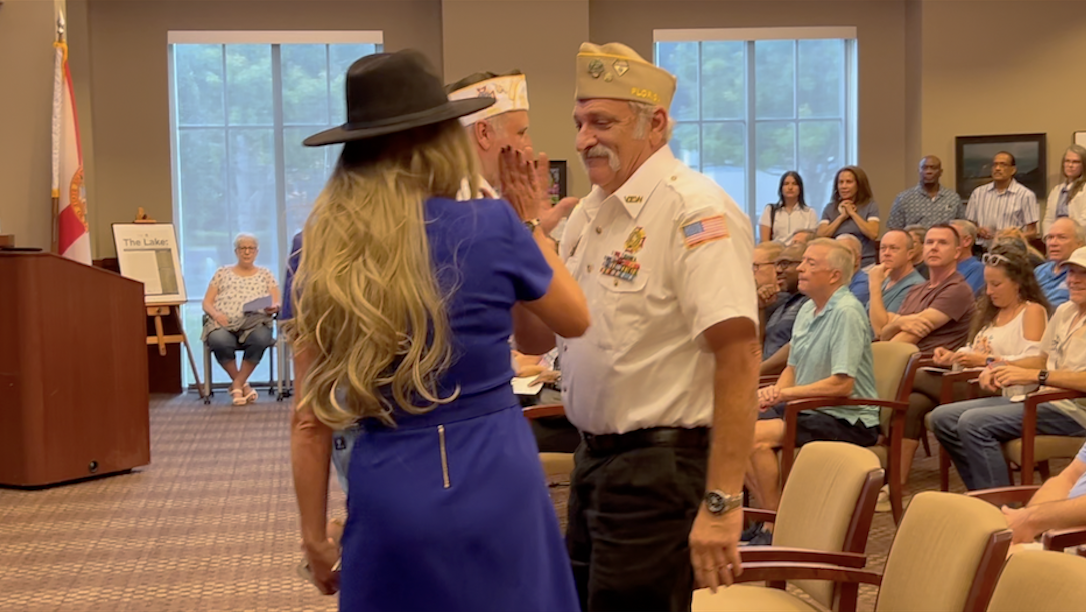Winter Garden Thursday voted unanimously to kill its vilified fire assessment, proposed in June to help close the city’s projected $12 million budget deficit for the Fire and Rescue Department.
City Manager Jon Williams told commissioners Thursday that staff had found a total of $4.1 million that could be trimmed from the 2025-2026 budget — $1.9 million in personnel and operating costs and $2.2 million in capital expenditures. That, plus a freeze on “non-public safety positions,” was enough savings for the city to reverse course on the fire fee.
“I'm going to make the recommendation tonight that we do not proceed with this public hearing to impose the fire protection and rescue assessment,” Williams said. Had it been enacted, the fire assessment would have covered between 80 percent to 85 percent, or $11.5 million, of the Fire and Rescue Department's projected $14.6 million budget.
District 4 Commissioner Colin Sharman made a motion to cancel the fire assessment. It was seconded and quickly passed.

However, it was not immediately clear to the standing room-only crowd in the City Hall Commission Chambers exactly what had passed.
“What does that mean?” Gary Miller, a Winter Garden resident, demanded. “Are you canceling the discussion or are you canceling the whole idea?”
“We are canceling the fire assessment fee. Period,” Mayor John Rees clarified.
At that, the crowd burst into applause. Three residents, sitting in the front row, jumped up, high-fived each other, then strode out of the meeting.
In another cost-cutting move, the city voted unanimously to axe Halloween Fest from its special events lineup, which Williams described as “a byproduct of COVID” that “was never intended to be permanent.”
Nixing Halloween Fest nets the city an additional $85,000 in savings, Finance Director Laura Zielonka told VoxPopuli via email.
“ We heard very clearly [from residents]. We need to do whatever we can to try to save money,” Williams said. “ We heard a lot of comments about eliminating special events. We're gonna continue to look at everything that we do and identify some areas for possible changes to achieve some savings.
The $50,000 trap, neuter, vaccinate, release (TNVR) program with Pet Alliance is also on the chopping block, Williams told VoxPopuli after the meeting. He added that the city was slicing the budget with “a scalpel rather than a chainsaw.”
During the public comment period, residents seized the opportunity to vent their anger about how the city handled the entire fire fee process, from notifying residents to convening meetings to solicit feedback.
Miller, who had attempted to be heard immediately after the vote, only to be shut down by the mayor who was eager to move on with the agenda, was livid about the short time-frame in which residents had to respond.
“ You didn't give anybody enough chance to learn what was going on, why you were doing it, what caused this to come up," Miller said. "He said you had 20 days to reply in writing ... You should have a minimum of 90 days for people to respond ... I have neighbors that arrived home after a two-month vacation today that didn’t even know this is going on, sir.”
Miller added that he didn’t believe the city needed the fire fee for the Fire and Rescue Department since that's “ always been funded in the budget of any city.”
Fire assessments cannot be used to fund anything other than fire protection and basic life support services, according to Nilgün Kamp of Benesch, who conducted the fire assessment study used to develop the city’s fee structure.
George Douglas, Winter Garden resident, said while he appreciated that the fee was canceled, he supported a “dedicated” fund for the fire and police departments.
“We have to be able to attract the most talented people in order to serve the citizens of the City of Winter Garden,” he said.
Winter Garden resident Stasha Boyd took the city to task for what she described as a “certain tone deafness” during the July 29 community meeting.
“ Everyone in this room is dealing with inflation, cost of living going up, things like that,” Boyd said. “That night that we had that meeting, it was like that didn't get mentioned or even noticed at all and it felt like it was a big hole in the presentation. This commission is about taking care of this community, and as a reminder, when you are making these decisions, remind yourself that that's all of us.”
She noted that another resident had mentioned that the homeowners on her block are all on disability or social security and are not running their air conditioners during the hottest weeks of summer because they can't afford the electric bills.
“If this commission doesn't know that that is going on, you need to know that now,” Boyd said. “And the next time, I would like to know what can we do as a community about things like that.”